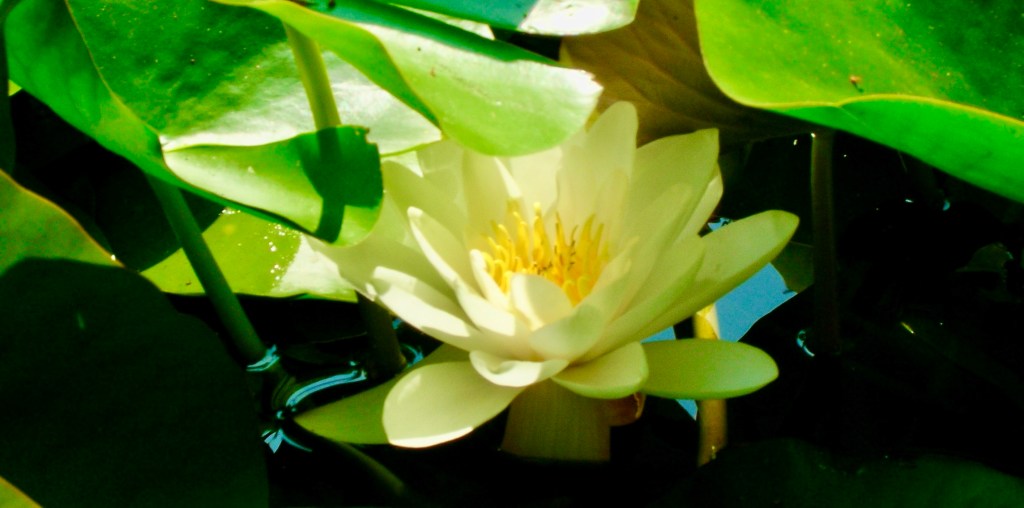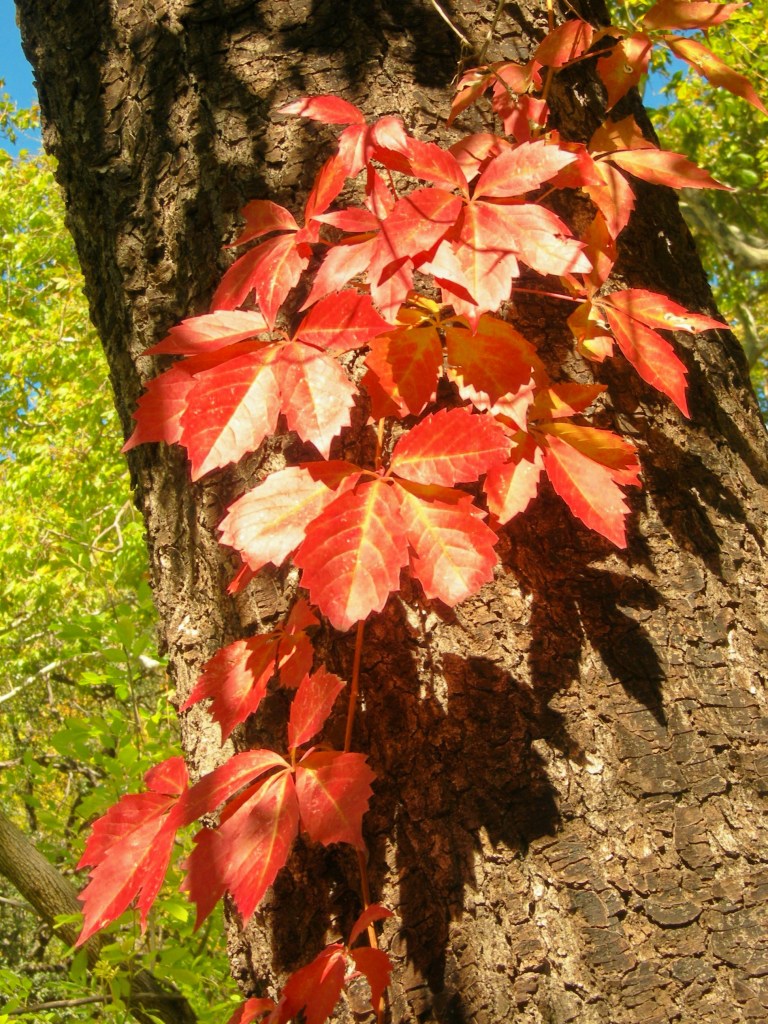It’s one of the greatest gifts you can give yourself . . . Forgive everybody. ~Maya Angelou

Valerie Kauer is a civil rights lawyer, author of SEE NO STRANGER: A Memoir & Manifesto of Revolutionary Love, and an award-winning filmmaker. In a very popular TED Talk, Valerie tells a heart-wrenching story about the first post-September 11 hate crime, the murder of a Sikh family friend whom she called Uncle, by a man who called himself Patriot. Years after the crime, Valerie accompanied the brother of the deceased to the prison where Patriot was detained. They spoke with the murderer, who expressed sorrow, saying when he gets to Heaven to be judged by God, he will ask to see the man he killed, hug him, and ask his forgiveness. To this, the brother responds, “We’ve already forgiven you.” Hearing those words melts me. I don’t believe there could be a more loving, generous, empathic statement he could make to the murderer of his brother. Valerie concludes the story with the idea, “Forgiveness is not forgetting. Forgiveness is freedom from hate.” And, freedom from hate, she continues, grants us the ability to see those that harm us not as monsters, but as wounded, threatened, and insecure, with their own sad stories.
Forgiveness is a practice that doesn’t come easy. It can take incredible effort to let go of hard feelings toward someone who has wronged us, especially if they have taken someone or something away from us. I was intrigued when I first learned that the process of forgiveness benefits me (the forgiver) more than the person that I need to forgive.

It is in pardoning that we are pardoned. ~Francis of Assisi
The Aramaic meaning of the term forgiveness is to let go, to cut loose (as in a tied animal), to release, to leave physically & psychologically. So you see, going through this challenging practice allows you to let go of – to cut loose – the hardness of heart, resentment, and darkness you’ve been harboring, sometimes for years.
Forgiveness results in many benefits that affect us (the forgivers) mentally, physically, & spiritually, within families, communities, and nations, according to The New Science of Forgiveness, from UC Berkeley’s Greater Good Magazine. In addition to diminishing negative emotions in general, the act of forgiving has been found to reduce stress, blood pressure & heart rate, improve immune function, and lessen or eliminate feelings of being out of control. In middle-agers, it has also been reported to reduce feelings of nervousness and restlessness.

An article from Mayo Clinic, Forgiveness: Letting Go of Grudges and Bitterness clearly states, “. . . If you don’t practice forgiveness, you might be the one who pays . . . By embracing forgiveness, you can also embrace peace, hope, gratitude and joy. Forgiveness can even lead to feelings of understanding, empathy and compassion for the one who hurt you.” The article goes on to say that the act of forgiving is not the equivalent of excusing or forgetting, nor does it mean reconciliation is required.
Reconciliation doesn’t even need to be considered. In a PDF entitled Forgiveness Counseling Guide, created by Dallas Baptist University’s Counseling Center, it is suggested, “If the person who has hurt you is unsafe (such as an individual who is emotionally, verbally, or physically abusive) or contributes to unhealthy thoughts, feelings, and behaviors in your life then reconciliation may not be wise . . .” As a matter of fact, the other person doesn’t need to know you’ve forgiven him/her, and frankly might not care. Again, the process is one to benefit you.
Forgiveness is (practiced) for yourself because it frees you. It lets you out of that prison you put yourself in. ~Louise L. Hay
Long ago, I read a quote that went something like this: Not forgiving is like drinking poison and expecting someone else to die. Recently, when I went online to find the source, I found many variations on the statement from writers, celebrities, activists, and others. After searching a little longer, I found information that the idea may have originated with the great Religious Science leader and writer Emmet Fox during the early part of the last century. This idea resonates strongly with me. I’ve realized in retrospect that some of the hardest times I’ve gone through with an individual were made more difficult for me by feelings of resentment toward that person that I had been holding on to, sometimes for decades. By forgiving and releasing those hurts, they become a part of my past, and therefore don’t find their way into new situations.

I want to gift you with a simple tool that I shared with my workshop participants years ago. We’ve all heard that journaling is a great tool for personal release and mental health in general. That also applies to the process of writing a letter (that you’ll never send) to someone who wounded you. Here’s the format:
- In the first paragraph, BLAST THEM! Curse them, let them know how deeply they hurt you, how angry you are, etc. Don’t hold back! This first paragraph can be as long as you need it to be – even pages.
- After that big purge, close your eyes, breathe deeply for a couple minutes, and imagine exhaling all the residual sludge from the experience.
- In the next paragraph, write about the lessons you have learned as a result of your suffering, as well as your desire to let go and forgive. (This part can be directed to yourself if necessary, remembering that the practice is for your benefit.)
- When the letter is complete, read it from beginning to end. Take some time to appreciate the progress you have made/are making in such a difficult situation.
- Lastly, when you’re ready, either rip the letter into tiny pieces or burn it (carefully!) as you repeat to yourself, I am letting this go: it will no longer have a hold on me. I am grateful.

Before closing, I’d like to mention the idea of forgiving yourself. Personally, I’ve found that forgiving myself along with those that hurt me is often a necessary component for truly letting go. (We often play some part in our trials with others, right? Of course, this doesn’t always apply: abused children and elders, for example, may be helpless and blameless.) If you go through the letter process above and don’t feel any relief, consider forgiving yourself, which may in fact be the most difficult part of the process. (I forgive myself for my role in this situation, and I let go of all hard feelings. Repeat, dozens of times if necessary, until you feel a shift.)
The practice of forgiveness is our most important contribution to the healing of the world. ~Marianne Williamson
In a world divided by race, class, religion, and other walls, forgiveness and its resulting empathy can be very useful tonics. Applying the practice to our own lives can result in increased love & understanding, better physical & mental health, and improved interactions within families & communities. Applying our forgiveness practice out in the world can serve us all in ways yet unimagined.

Blessings for Forgiveness,
Lisa
The content of this article is for educational and informational purposes only, and is not intended as medical advice. Please consult with a qualified health care professional before acting on any information presented herein. Any statements about the possible health benefits of any subject discussed have not been evaluated by medical professionals or the Food & Drug Administration and are not intended to diagnose, treat, cure or prevent any disease or illness.

I agree dear… Its easy to say than to exactly forgive and go on😊
LikeLiked by 1 person
Hi Soni, thanks for the comment. It wound up in my spam folder as well! 🌞
LikeLiked by 1 person
Very inspiring read, felt like a bright ray of hope in today’s world filled with so much hate 💖
LikeLiked by 1 person
I so appreciate your kind comment, Deb! 🌞
LikeLiked by 1 person
Beautiful photos. I really appreciate the journals tips.
LikeLiked by 1 person
Thanks for dropping by and commenting, Sarah! 🌞
LikeLiked by 1 person
A thought-provoking piece! Thanks for sharing 🙂
LikeLiked by 1 person
Hi, Susan, I appreciate your reading & commenting! 🌞
LikeLike
Forgiveness is one of the hardest virtues to attain. It’s so much easier to just hate and hold a grudge. Thank you reminding us of the importance of forgiving. It’s the only way we can really move ahead. 💕
LikeLiked by 1 person
I am happy you appreciate the post! Thanks for reading! 🌞
LikeLiked by 1 person
Great perspective, Lisa.
Far too many people hold grudges and it’s like them taking poison and expecting the other person to die.
Jesus said it best, “Father, Forgive them; for they know not what they do.”
LikeLiked by 1 person
Yes, Dave, thanks for the comment! Enjoy your weekend!🌞
LikeLike
Beautiful truths in your post Lisa with so many pearls and great pics. Forgiving is probably one of the hardest things to do and implimenting is a the challange but neccesary and you’re right, forgiving ourselves is the first step. Holding upset only hurts ourselves. Thanks for the share!!! ❤️ Cindy
LikeLiked by 1 person
You are right, and I appreciate your comment Cindy! 🌞
LikeLiked by 1 person
You’re most welcome!!! Hugs and Love! ❤️
LikeLiked by 1 person
Backatcha, sister! 🌞
LikeLiked by 1 person
Thanks so much!!! ❤️🤗
LikeLiked by 1 person
Lovely pictures! very inspiring post!
LikeLiked by 1 person
Thanks very much, Jyothi! 🌞
LikeLiked by 1 person
Only a strong-willed person can forgive. Kudos to you for such a nicely articulated and thoughtful article with equally beautiful pics. The idea of writing letter is marvellous.
LikeLiked by 1 person
Hello, KK, and thank you for dropping by! I appreciate your kindness. 🌞
LikeLiked by 1 person
An essential post.. I have stopped expecting people to say me sorry, if they have hurt me. But letting go and forgiving is the hardest part. Thank you for the wonderful tips. I think I can move on more easily now. Thank you Lisa❤️
LikeLiked by 1 person
I am happy you appreciate this, Divya! Thanks for letting me know! 🌞
LikeLiked by 1 person
I am happy that I read it first thing in the morning. A wonderful start for the day ahead. Thank you for that❤️🤗
LikeLiked by 1 person
Fantastic! Thanks again! 🌞
LikeLiked by 1 person
The format is exemplary.Thank you.
LikeLiked by 1 person
Thank you, S! Hoping your weekend is going well! 🌞
LikeLiked by 1 person
Yes.Have a great weekend
LikeLiked by 1 person
A wonderfully open and important post in these difficult days!
LikeLiked by 1 person
Thank you, Ashley, I appreciate your reading! 🌞
LikeLiked by 1 person
Forgiving does help you to let go. Otherwise, it can eat away at you. Thoughtful post. 😀
LikeLiked by 1 person
Hi Rachel, nice to see you here again, and thank you for commenting! 🌞
LikeLiked by 1 person
These are such true words. I appreciate the journaling exercise. I will use and share this.
LikeLiked by 1 person
Awesome, LaDonna! Thanks for letting me know! 🌞
LikeLike
Great !👏👏💓💓
LikeLiked by 1 person
Thanks, Asra! 🌞
LikeLiked by 1 person
The hardest and GREATEST challenge ever in my life was (1) finding a way to embrace my past mistakes, (2) forgiving the individual who hurt me, (3) accepting my role in the matter, and (4) forgiving myself. The hardest step was forgiving my own self. It took a long, long time (several years) to realize that by not forgiving my own self, I was holding onto negative energy that was making my life even more miserable. Thank you for addressing this “topic”. I think your blog is very, very important especially during this current time in our lives. We live in a Nation (and World) that is filled with hatred, bitterness, division, etc….. In order to have love, joy, peace and happiness in our lives, we must also have FORGIVENESSES!
LikeLiked by 2 people
Hi, mamaceil, thanks for sharing part of your story. A great realization that you had! I appreciate your point of view. Have a great week, my friend. 🌞
LikeLike
This is so inspiring 🥰🥰
I loved it💖
LikeLike
Happy to hear it! I appreciate your letting me know! 🌞
LikeLiked by 1 person
It was my pleasure 🥰💖
LikeLiked by 1 person
Very nice post with inspiring thoughts and beautiful pictures 😀👍🏻👍🏻💕
LikeLiked by 1 person
Hi, Dulcy, you always have such nice things to say. Thank you from the bottom of my heart! 🌞
LikeLike
Anytime 💛😊
It’s my pleasure 😊
LikeLiked by 1 person
great and very important piece. Forgiveness is a process, and it takes courage. The rewards are wonderful!!
LikeLiked by 1 person
Yes, I agree, Mon! Nice to see you here again! 🌞
LikeLiked by 1 person
I totally agree with you… Wonderful post
LikeLiked by 2 people
Thank you for reading and taking time to comment! 🌞
LikeLiked by 2 people
This is good Lisa!! Very good! I’m forwarding it to Cody to help him with his breakup!! Love you💞
LikeLiked by 1 person
Thanks Cindy & I love you too girly! Sorry to hear about Cody. ☹️
LikeLike
Great writeup on forgiveness and let go attitude !Thanks for the inspiring ideas !
LikeLiked by 1 person
Thanks for reading and commenting! 🌞
LikeLiked by 1 person
My pleasure !
LikeLiked by 1 person
The vine with red leaves climbing the tree trunk appears to be Virginia creeper (Parthenocissus quinquefolia). The species name indicates that each compound leaf has five leaflets.
LikeLiked by 1 person
Well thank you, Steve! You should check out my post on wildflowers and advise what each of those are as well! 🌞
LikeLike
I’m afraid I don’t know much about botany outside of central Texas. I recognized Virginia creeper because it happens to grow here as well as in many other places.
LikeLiked by 1 person
Forgiveness is therapeutic, Do read my post on why forgiveness to me is a 3 fold approach. https://sunniesmybunnies.wordpress.com/2020/11/09/abundance-week-5 . Thank you for sharing this wonderful post.
LikeLiked by 1 person
Thanks for dropping by & leaving your kind comment! I will check out your post. 🌞
LikeLiked by 2 people
Great will look forward to your input 🙂 have a blessed day .
LikeLiked by 1 person
It took me long time to realize that kindness, compassion, forgiving are the ways to capture other’s hearts.
LikeLiked by 1 person
Hi Rosy, thank you for visiting & sharing your kind thoughts. 🌞
LikeLike